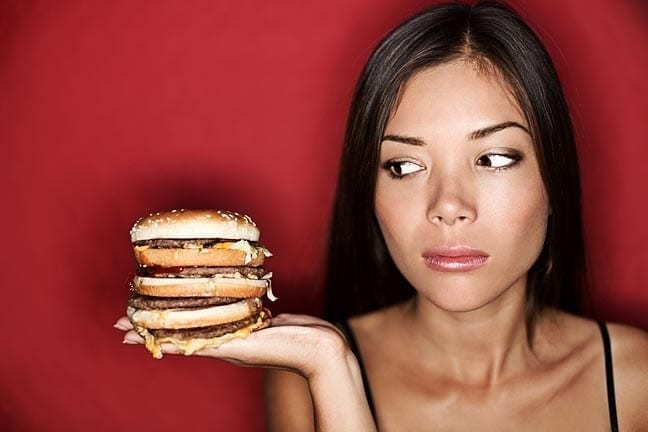Feeling a little grouchy lately? It could be your aggravating significant other (really? toilet seat up AGAIN?) or, according to a new study, it might be your afternoon pick-me-up or your late-night snack.Study leader Beatrice Golomb, MD, PhD, a researcher and professor at the University of California, San Diego medical school, gave 945 Californians who were already enrolled in a clinical drug trial a dietary survey in which they reported what they ate, and when Dr. Golomb then conducted behavioral tests and asked questions of the participants designed to measure impatience, irritability and aggressive behavior. The results? There’s a strong connection between a diet high in trans fats and traits of irritability and aggression.Dr. Golomb was not surprised that her study revealed this connection, but she was surprised by how strong that connection was. Trans fats (man-made synthetic compounds created by blasting unsaturated fats, such as vegetable oils, with hydrogen atoms so they are solid at room temperature), have been shown to inhibit the production of DHA, one of the important omega-3s that has been linked to better brain health and agreeableness, she explains.
MORE FROM SELF: Eat Protein to Get Thin Now!
Also, she says, trans fats are oxidative stressors (meaning they may impair brain cell energy production), and other substances that share these factors have been linked to increased risk of aggression.”So, we had a reason to look,” Dr. Golomb tells HealthySELF. “But the statistical strength of the association and striking consistency across both aggression and irritability measures examined and subject groups — younger, older, male, female, Caucasian, minority — were rather a surprise,” she says.
When it comes to the mental health profession, says Dr. Golomb, diet should be considered along with other factors that can affect mood, like sleep, inadequate exercise, vitamin D levels and medications. “These are a far more major factor in irritability and aggression for a far larger fraction of people than is generally appreciated,” she says. “Examination and modification of these factors should play a far more central role than they presently do.”Worried that your own snacks might be making you cranky? Checking the label for “trans fat” might not be enough. As SELF.com nutrition blogger Sarah-Jane Bedwell, registered dietitian, reported in October, the Nutrition Facts label is only required to list trans fats if the food exceeds half a gram of trans fat per serving, so it could still be hiding in some of your favorite packaged snacks. Watch out for anything made with hydrogenated oils, like many peanut butters, packaged crackers or cookies, cake, bread, muffin and pancake mixes and frozen foods.
MORE FROM SELF: The Happiness Boost We All Need
What’s more — unhealthy snacking can be a vicious cycle. As SELF reports in the June 2012 issue, not only can stress cause you to crave treats, but research from the University of Central Lancashire shows that boredom at work can also make you want to reach for a junky snack. Though Dr. Golomb’s study did not look into the addictive aspect of trans fats, she conjectures that “foods that adversely affect aspects of cell energy may produce a feeling of craving rather than satiety.”So — instead of grabbing a snack that might make you cranky, aggressive and only want more of the same, here are some much better ideas:- Did you know pomegranates are good for your brain? So are these other three foods!– These 12 snacks won the SELF 2012 Healthy Food awards (chips included!).- Find yourself with a nighttime snack craving? Here are 5 healthy choices.




































